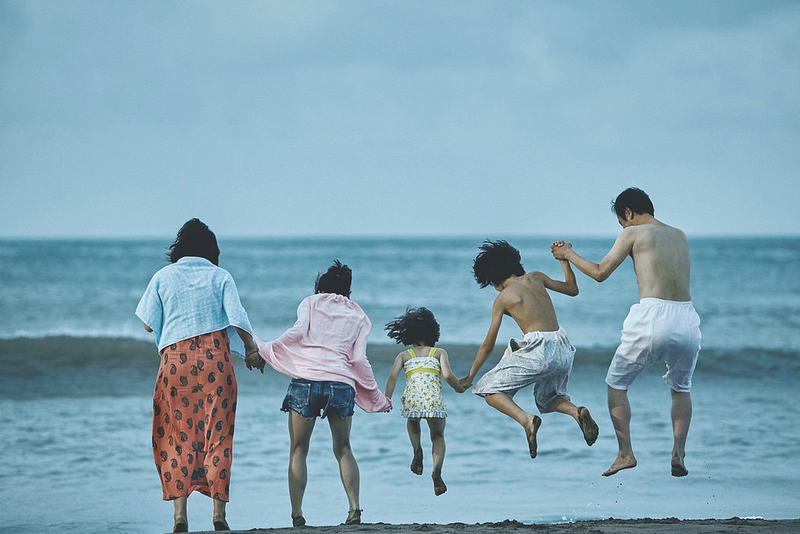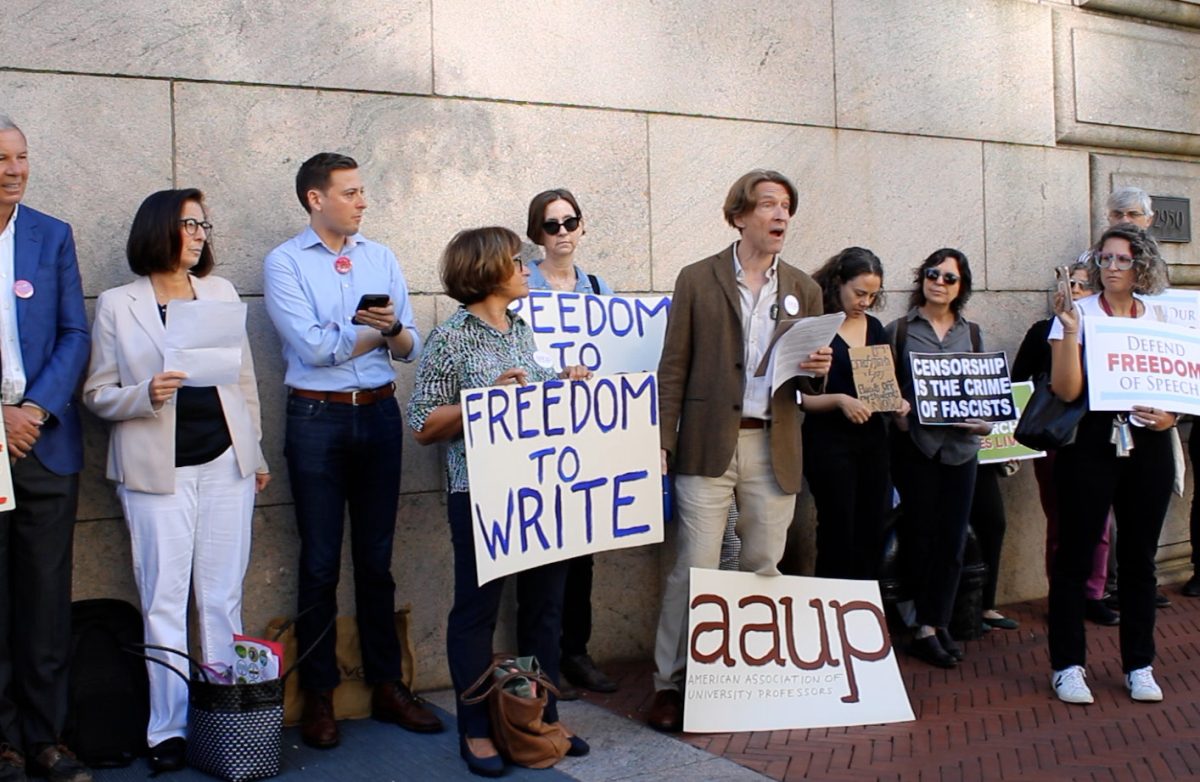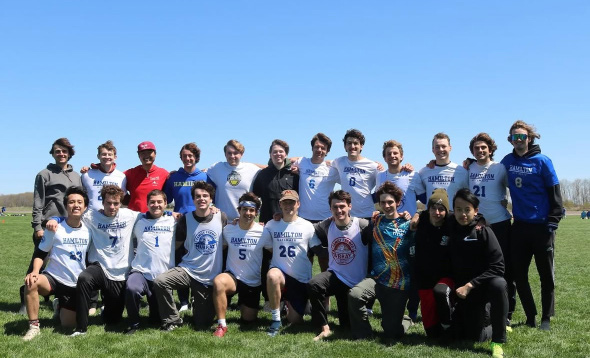
On Saturday, Nov. 9, and Sunday, Nov. 10, the Hamilton College Film Club had its second annual trip to the Glimmerglass Film Days Festival in Cooperstown, N.Y. The theme of this year’s festival was “Adaptations.” Featured films addressed topics such as the aftereffects of exile, relocation, poverty, and prejudice; the effects of climate change; dealing with disaster; and, in general, people making the most of the situations in which they find themselves.
Students enjoyed three film screenings on Saturday:
One Man Dies a Million Times
(2019),
Kifaru
(2019), and
Honeyland
(2019). Promoted as “a true story, set in the future,”
One Man Dies a Million Times
is based on the Siege of Leningrad, which lasted from Sept. 8, 1941 to Jan. 27, 1944. Over one million people died from the German blockade of the city (mostly from starvation). Director Jessica Oreck’s retelling of the event is set in modern-day St. Petersburg (today’s name for Leningrad) and narrated with text written during the siege. Oreck chooses to focus on the N.I.Vavilov Institute of Plant Genetic Resources, where scientists have created a seed bank to solve global famine crises. Warfare soon cuts the city of Leningrad off from the rest of Russia, and from electricity and food. As the citizens of Leningrad begin to starve, the scientists must protect their priceless stash of edible seeds from the city.
One Man Dies a Million Times
is a film about fighting for survival, fighting for the future, and fighting for the things and the people you love — in perhaps an all-too-real future scenario.
Filmmaker David Hambridge’s
Kifaru
documents the life of one of the last male northern white rhinoceroses left in the world, called “Sudan,” and two young Kenyan recruits who join a group of rangers dedicated to 24/7 care and protection of Sudan.
Kifaru
, which literally means rhinoceros in Kiswahili, highlights the interdependence of animals and humans as intrinsic to wildlife conservation. While Sudan is dependent on the rangers for survival, it is clear the rangers are also dependent on Sudan. As time begins to run out for the aging animal, one wonders if time is also running out for the scientists and rangers tasked with protecting the species from extinction. It becomes clear that much more than a rhinoceros will be lost if Sudan dies.
Honeyland
tells the beautiful and complicated love story of Hatidze Muratova, a woman who makes a living cultivating honey using traditional beekeeping methods in the mountains of Macedonia while also caring for her ailing mother Nazife. Filmed over a period of three years, the directors (Ljubomir Stefanov and Tamara Kotevska) capture both the beauty and the hardship of Hatidze’s life. In a documentary that feels as poetic as fiction, the audience witnesses Hatidze’s conflicts with the environment as well as with her unruly neighbors who view their home and land much differently than she does.
Sunday’s screening also consisted of three films:
Toni Morrison: The Pieces I Am
(2019),
What You Gonna Do When The World’s On Fire?
(2018), and
Shoplifters
(2018). With the recent passing of ground-breaking and widely acclaimed author Toni Morrison, this documentary celebrating her life and work feels especially poignant. Directed by Timothy Greenfield-Sanders, the film discusses Morrison’s novels, including
The Bluest Eye
,
Sulda
, and
Song of Solomon
, and their impact on American culture. Despite their wide success, Morrison’s works still invite controversy, underscoring the struggles of being a black female voice in the world of white-and-male-dominated publishing. Morrison recounts her own memories of her childhood in Lorain, Ohio, studying and teaching at Howard University, going on book tours with Muhammed Ali, and attending Nobel Prize parties. Through the lens of her life and work, Morrison crafts a thoughtful dialogue on race, America, and what it means to be human.
Directed by Roberto Minervini,
What You Gonna Do When The World’s On Fire?
looks at four of Louisiana’s black communities during the summer of 2017 when police killings of African Americans were common news cycle topics. As a participant-observer, with his subjects living and speaking about their everyday lives, Minervini poetically captures the sense of fear and isolation that was permeating all parts of the African American communities in New Orleans. However, the film finds moments of hope and joyfulness as people just live their daily lives, and try to endure. Filmed in black and white, the film’s striking imagery draws the viewer deep into these local communities with a sense of intensity and intimacy.
Shoplifters
, a widely-acclaimed film from the great contemporary Japanese director Hirokazu Kore-eda, contrasts the strength of the relationships forged by choice and love with those maintained by obligation and blood. Kore-eda tells a moving and surprising story about an unconventional, non-biological family in Tokyo who are on the brink of poverty and shoplift to survive. Although this group of outcasts and misfits may look dysfunctional from the outside, together they support and comfort each other, more frequently than in conventional relationships. When one of the family members gets arrested, their underground lifestyle begins to unravel, testing their relationships.
Shoplifters
was nominated for the Academy Award for Best Foreign Language Film in 2018 and the Golden Globe Award for Best Foreign Language Film in 2018.

















